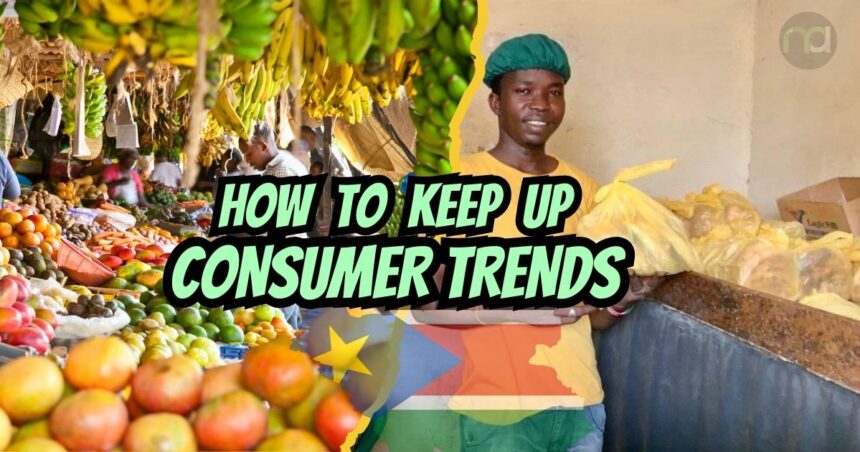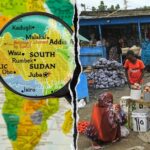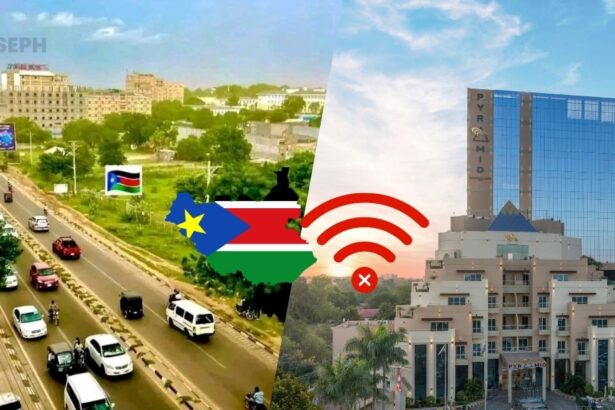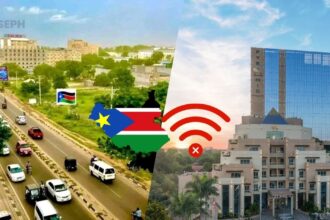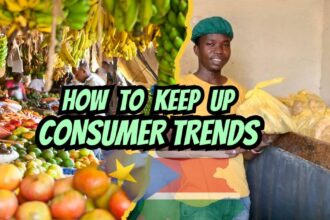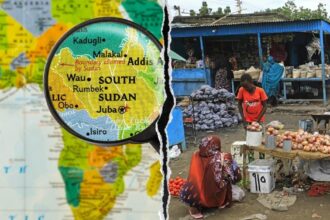Over the past ten years, South Sudan has tackled major challenges linked to conflict, unpredictable funding, and limited infrastructure. Despite these barriers, local markets keep evolving as people seek reliable products and services. Many residents rely on open-air stalls for daily needs, while a growing number turn to digital platforms for better prices and convenience. Mobile phones are now more common in urban hubs, which supports the spread of mobile payments and online promotions.
Some donor programs have scaled back, but local entrepreneurs are finding fresh opportunities in off-grid energy, small-scale manufacturing, and digital finance. Young consumers in particular show interest in trying new brands and tech-driven solutions. These shifts mean that companies willing to adapt can reach buyers who are open to modern ways of paying and connecting.
In my earlier guide on 7 Steps to Start a Business in South Sudan, we explored how to register a company and meet legal requirements. This follow-up looks at changing consumer behavior in 2025 and offers strategies for success. From smaller packaging methods to mobile money adoption, we look at what motivates shoppers today and how companies can keep pace.
How Shopping Habits Are Changing in South Sudan
Many households in South Sudan focus on daily essentials such as cereals, cooking oil, and basic home supplies. According to local reports, most families use more than half of their income for food, which reduces the amount left for anything beyond necessities. Inflation remains high, so shoppers often purchase goods in small quantities, hoping to avoid large expenses that may become unaffordable the following week.
In major towns like Juba, residents visit open-air markets with numerous stalls selling everything from fresh vegetables to secondhand clothing. Bargaining is common, and shoppers compare prices across different vendors to find the best deal. This informal system gives people flexibility when incomes are uncertain. Vendors, for their part, stock smaller sachets or single-use packets of items like sugar or salt because many buyers do not have the cash to buy bulk packages. Offering mini sizes is an excellent strategy for retailers who want to keep sales steady despite inflation.
Some higher-income or expatriate consumers turn to modern supermarkets that carry imports from Uganda, Kenya, or beyond. These supermarkets have more fixed pricing, but they are out of reach for most households. The bulk of the population continues to rely on local stalls and corner shops. Business owners who cater to both groups by offering different brands at varied price points are more likely to succeed. For example, one shop might sell both a premium Ugandan tea brand for wealthier consumers and a more affordable variety for the average shopper. By acknowledging multiple spending capacities, retailers avoid limiting their customer base.
Another factor influencing shopping habits is the weak local currency. Traders often adjust sticker prices based on the exchange rate because many essential products are imported. As the South Sudanese Pound loses value, the cost of items goes up, which makes consumers even more cautious in their spending. Some markets accept foreign currencies like the US dollar or the Kenyan shilling, which can stabilize transactions for those who have access to these notes. Still, paying in foreign currency is not an option for the majority who earn wages in local pounds.
Business Strategies for Changing Shopping Habits
Entrepreneurs who want to align with current shopping patterns should focus on smaller packaging, clear pricing, and varied product lines that fit different budgets. They should stay informed about currency fluctuations and respond quickly when import prices shift. Building trust through consistent stock can also help. Customers who frequently see empty shelves may search for more reliable shops. By keeping essential goods in stock, even at modest profit margins, businesses can maintain customer loyalty.
Businesses can also benefit from direct engagement with customers. Short conversations or surveys reveal which products have become too expensive for everyday purchases and which items are in higher demand. This information helps retailers plan their orders and avoid wasting money on slow-moving stock. In a volatile economy, being flexible and willing to change product assortments matters. Some shops rotate affordable deals to draw in more buyers. Others might accept mobile payments to serve customers who prefer digital transactions.
Why Mobile Money Is Growing Quickly in South Sudan
Mobile phone ownership in South Sudan has risen in the past few years. Even though connectivity is limited in rural areas, many urban households use smartphones for communication. People who lack internet still rely on basic phones with messaging services. This shift has enabled the spread of mobile money platforms, which act as an alternative to traditional banking in a country where only a small fraction of adults have bank accounts.
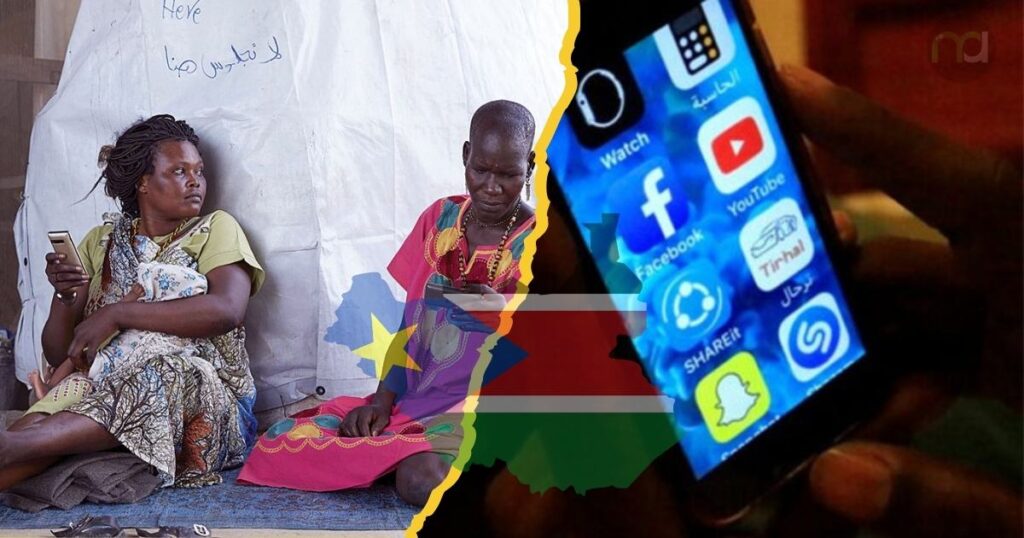
Services like m-Gurush and MTN Mobile Money gained momentum after regulations in 2017 allowed them to operate. These platforms let users deposit, withdraw, and send funds through agents spread across towns and some rural markets. The cash is stored in digital wallets, which is safer for people who worry about theft. In regions marked by conflict or high crime, not carrying large amounts of cash can be a huge relief. Mobile money also helps individuals who receive remittances from relatives in other countries. Those funds can be sent directly to a phone wallet instead of risking a physical transfer.
Digital transactions are slowly making inroads into daily commerce. Instead of paying for groceries with bundles of notes, a customer can transfer funds to a vendor’s wallet. Fees have decreased, encouraging more people to register. Some providers have introduced dollar-based wallet options to protect against inflation. Social media has also played a role, as people share experiences of using mobile money or find shops that accept it.
How to Boost Sales With Mobile Money in South Sudan
Merchants who use mobile money can reach more customers, especially younger buyers. This approach avoids handling large amounts of cash, reducing security risks and simplifying accounting. After registering with a mobile money agent network, shop owners display a sign that encourages customers to pay through phone wallets.
Offering loyalty points or small discounts can encourage more people to adopt these payments. Satisfied users often share positive feedback, which spreads awareness. Over time, digital records reduce theft and help businesses manage bookkeeping more easily.
Providing incentives for digital payments helps boost adoption. A merchant might offer a slight discount or loyalty points to those who use mobile money for larger purchases. These steps build positive feedback loops, because satisfied users share news of a shop that accepts phone-based payments. Business owners can then track sales more accurately if they maintain digital records. This approach decreases the risk of theft and simplifies bookkeeping.
Where Financial Services Fit Into Consumer Habits
The formal banking sector in South Sudan is small, serving mainly government employees, NGOs, and a few private companies. Because most people do not have a payroll record or reliable collateral, banks are hesitant to provide loans. Inflation also makes lenders cautious, so they often charge high interest or deny applications altogether. This leaves a gap in the market for more accessible financial tools.
Mobile money fills part of this void by acting as a basic account. Some telecom providers are testing micro-loans based on an individual’s phone transaction history. This model has worked in neighboring countries, where prompt repayments allow people to borrow slightly larger amounts over time. In South Sudan, these products are still in an early phase, so many consumers rely on local moneylenders who can charge exorbitant rates.
Informal savings groups and rotating credit associations continue to be common in rural communities. Members contribute small amounts that rotate among the group for larger expenses. These setups rely on trust and personal relationships, but they can break down if members default or migrate due to conflicts. Urban dwellers may join similar clubs through churches, workplaces, or local welfare groups.
Business Strategies for Engaging Financial Services
Companies, especially those selling bigger-ticket items like electronics, can explore partnerships with mobile money providers to offer installment payments. This allows some customers to break down a high cost into more manageable chunks. Firms that handle essentials like water filters or solar kits can find new buyers if they allow partial payments over time.
Another approach involves working with microfinance or development agencies. If a business provides seeds or farm tools, for instance, microfinance loans can help farmers purchase them without straining their daily budgets. In turn, the company can count on more consistent orders. Keeping a record of these transactions can build a loyal customer base that sees tangible benefits.
Why Agriculture and Food Supply Remain Challenging
Agriculture is at the core of daily life in South Sudan. Research indicates that close to 95 percent of the population depend on farming, fishing, or herding to survive. Despite this reliance on local production, the country continues to bring in cereals and other essentials from neighbors such as Uganda and Sudan. In 2022, local farms generated around 936000 tons of cereals, but estimates showed people needed about 1480000.
That shortfall forced authorities and aid groups to import grains or offer direct food aid. Conflict, flooding, and drought have all limited the ability of South Sudanese farmers to plant and harvest consistently. Many rural families lose fields to floods or see crops dry up when rains fail, which pushes them to buy imported goods at higher prices.
Households who can afford it often prefer local products like fresh sorghum, maize, or vegetables. These items tend to have more flavor and align better with cultural diets. Unfortunately, climate shocks have become frequent, with some regions seeing unpredictable rainfall patterns or repeated flooding that wipes out fields. Inflation also drives up the cost of agricultural inputs, so small-scale farmers struggle to produce enough.
Many people have little choice but to rely on cheaper staples or cut meals to one a day. Urban shoppers in places like Juba sometimes find small supplies of local meat or greens, but the prices can spike quickly when there is a shortage. Humanitarian agencies help fill the gap, yet ongoing insecurity and transport problems can disrupt food deliveries.
Business Strategies for Navigating Agriculture Issues
Businesses that deal in food products should adapt by offering seasonal varieties and tracking climate patterns. If floods are likely, it may be wise to stockpile essentials before roads wash out. Companies that invest in improved storage facilities can keep products fresh and sell them at more stable prices. Those who form relationships with local farmers can secure supply while supporting domestic production.
Food importers and wholesalers should monitor currency shifts, because small changes in the exchange rate can raise import prices overnight. Flexible pricing lets them pass changes on to consumers without being caught off guard. Yet they should avoid jacking up costs without explanation, as transparency fosters goodwill. Posting clear price signs and updating them regularly can help.
How Energy Problems Drive Consumer Decisions
Electricity is rare outside a handful of central areas in Juba. Rural households often rely on charcoal, wood, or kerosene for cooking and lighting. Diesel generators fill gaps in some towns, but diesel remains expensive due to import expenses. Fuel shortages can quickly halt transport and raise prices for everything from flour to phone charging services.
Solar power has been gaining traction as a more reliable, if still limited, alternative. Small shops sell solar lamps and panel kits that power a few lights or a phone charger. International donors and NGOs often supply subsidized systems to schools, clinics, or farmers who need irrigation pumps. Although these solutions do not match the reach of a full power grid, they help families and businesses move away from costly and polluting diesel options.
Some larger projects have emerged, such as a solar farm near Juba that connects to the city’s minor electrical network. This initiative could lower tariffs for local businesses that sign up for the new power lines. Refrigeration, for example, becomes possible for shops selling fresh produce or cold drinks, which boosts profits. Greater access to solar also supports the use of mobile phones, because users can charge devices more consistently.
Business Strategies for Handling Energy Constraints
Companies that require steady power can invest in small-scale solar or partner with local solar providers. Even a modest panel setup can reduce the unpredictability of diesel generators. In the retail sector, a store that keeps lights on after dark can extend working hours and draw evening customers who cannot shop during the day.
Another tactic is selling or maintaining solar products. Entrepreneurs who distribute affordable lanterns and panels could build a loyal customer base that relies on these goods. Shops can also offer phone-charging services powered by solar. This adds a modest revenue stream while meeting a real need for people who lack home electricity. Partnering with NGOs that push solar adoption is a chance to receive training or discounts on bulk purchases.
What Is Driving Consumer Changes in 2025
Shoppers in South Sudan face complex economic pressures that keep them on guard. Inflation hovered around 16 to 17 percent in 2022 and 2023, based on data from AFDB, and the local currency lost much of its value between 2019 and 2022. This causes higher prices for everyday goods while wages rarely keep up.
Some shops have responded by pricing items in US dollars or neighboring currencies, but most people earn only in South Sudanese pounds and cannot switch easily. Many families have no choice but to buy smaller portions or opt for cheaper substitutes. A brief spike in oil revenue during 2023 offered some hope, yet most households saw little improvement in their daily finances.
Political conditions affect consumer spending as well. The transitional government formed after a 2018 peace deal has helped reduce large-scale conflict, though scattered violence still hinders trade routes.
Officials sometimes try to lower costs by waiving import duties on essentials like fuel or flour, but these moves are often uneven and hard to predict. Foreign aid, once a major support for many communities, has dropped since 2022, forcing more people to rely on markets for food or basic goods. Meanwhile, South Sudan has joined the East African Community, and although tariffs have yet to align fully, this membership could eventually ease import barriers.
Technology adoption is another key factor. Over one third of the population now uses mobile phones, which opens doors to digital payments, online promotions, and broader product awareness. Young people in urban centers frequently engage with social media, finding new brands or discounts posted by local businesses.
Rural communities move more slowly, given spotty network coverage and lack of reliable electricity, but incremental upgrades in telecom infrastructure hint at gradual progress. Remittances from relatives overseas also matter. They can boost some households above the poverty line and help them pay for solar kits, smartphones, or imported foods. Cultural influences, such as global music or Nollywood films, spark interest in modern clothing, gadgets, or even wedding trends.
Finally, the gap between urban and rural lifestyles remains large. In places like Juba or Wau, consumers have limited access to supermarkets, taxis, and billboards. They also see more foreign NGOs that can alter local markets by offering temporary jobs or distributing relief items. Farther from city centers, people depend on smaller trading posts and must budget carefully for high transport costs.
Government projects to improve roads and electricity may gradually reduce these differences, but for now location strongly dictates consumer habits. Lower-income families coping with steep inflation and limited resources live side by side with wealthier shoppers who buy imported goods in US dollars. That contrast underscores the diverse challenges and opportunities businesses face when they enter this market.
Business Strategies to Thrive in South Sudan
Adapting to South Sudan’s fluid and challenging consumer environment calls for a mix of creativity and cultural awareness. Businesses that observe pricing trends, invest in local partnerships, and harness digital tools can remain resilient, even when inflation or infrastructure setbacks occur. The following approaches build on our earlier research, illustrating how companies can stand out in a market where shoppers are eager for practical, affordable solutions.
Adjust Prices for an Inflationary Market
Frequent currency shifts make pricing a constant challenge. Offering goods in smaller, more affordable packets helps people with tight budgets. A food retailer might sell cooking oil in single-use sachets, for instance, instead of one large container. Some shops list prices in stable foreign currencies, but transparent communication ensures customers do not feel alienated. A simple sign explaining why costs changed, or friendly staff who clarify the reasons, can prevent misunderstandings. Bundling items at a slight discount also encourages bulk buys for shoppers who can afford it.
Leverage Social Media and Digital Platforms
Even though internet access is limited, mobile usage in cities has grown. Sites like Facebook and WhatsApp are popular for staying informed or finding deals. Businesses should keep an active presence, posting clear photos and prices of items, running occasional promotions, and using local dialects if needed. Paid ads can reach urban youth, and simpler channels such as SMS or radio can tap rural audiences. When consumers see real-time updates on sales or new stock, they are more likely to engage. Mobile ordering and delivery services, while still small, show promise for expanding beyond foot traffic.
Integrate Mobile Money Into Your Operations
Bringing mobile money into a business can drive sales by letting consumers avoid the hassle of large cash transactions. Shops in Juba already display signs for m-Gurush or MTN Mobile Money payments. Transaction fees are often low, and each phone-based sale reduces the risk of theft or false notes. Merchants can store a portion of their funds in US dollars within their digital wallets, shielding them from daily currency fluctuations. Wider acceptance of mobile money can also streamline supply chain payments, cutting down time and handling costs.
Tailor Products to Local Cultures
South Sudan’s diverse ethnic groups and languages call for careful marketing. Localizing campaigns might involve translating product labels into Arabic or local dialects, as well as highlighting cultural values like family unity or community well-being. Hosting small demos in towns or giving free samples can build credibility. Some businesses find success by modifying packaging size or content to match local lifestyles. For instance, pairing a solar lamp with a phone charging port meets multiple needs at once. Meanwhile, those who conduct research on specific regional customs can avoid awkward missteps and cultivate loyal buyers.
Improve Supply Chains and Distribution Networks
Maintaining steady stock in South Sudan requires forward planning. Road conditions can deteriorate, and flooding may block entire regions. Creating storage facilities on higher ground, or planning imports before the rainy season, keeps shelves from running empty. Some companies partner with logistics providers to merge shipments, saving on transport costs. Others set up smaller distribution hubs closer to rural customers. Whenever possible, sourcing local produce and materials also appeals to consumers, and it can stabilize costs if foreign currency becomes scarce. Keeping contingency routes, spare parts, or alternative suppliers helps sidestep unexpected shutdowns.
Collaborate With Communities and NGOs
Nonprofit groups and community leaders influence many aspects of daily life in South Sudan. Working with them on training or development projects can earn goodwill and open new distribution channels. A phone repair training program might lead to micro-franchise opportunities for local youth, who then sell the business’s products or services in areas that lack formal shops. NGOs distributing aid through mobile money introduce potential customers to phone-based payments. By aligning with existing programs, businesses can multiply their impact without taking on all the costs alone.
Keep Evolving With the Market
South Sudan’s economy changes quickly, whether due to shifts in government policy, a new wave of returnees, or global price fluctuations. Companies that do not adapt risk losing relevance. Regularly monitoring currency rates, gathering customer feedback, and embracing cost-effective technology can maintain a competitive edge. Even small tweaks, such as offering a culturally relevant promotion or negotiating a better deal with a local supplier, can safeguard margins in a volatile setting. Building trust through honest pricing, consistent stock, and community engagement will ultimately help a business stand out and retain a loyal customer base.
Wrapping up
Consumer behavior in South Sudan is evolving as technology spreads, local industries adapt, and residents seek better ways to manage inflation and unreliable infrastructure. Businesses that notice these patterns and respond proactively will thrive. Smaller package sizes, mobile payments, and solar partnerships are just a few strategies that can deliver tangible results. By focusing on affordability, reliability, and community engagement, companies in South Sudan can build loyal customer bases and promote gradual growth, even in challenging conditions.

